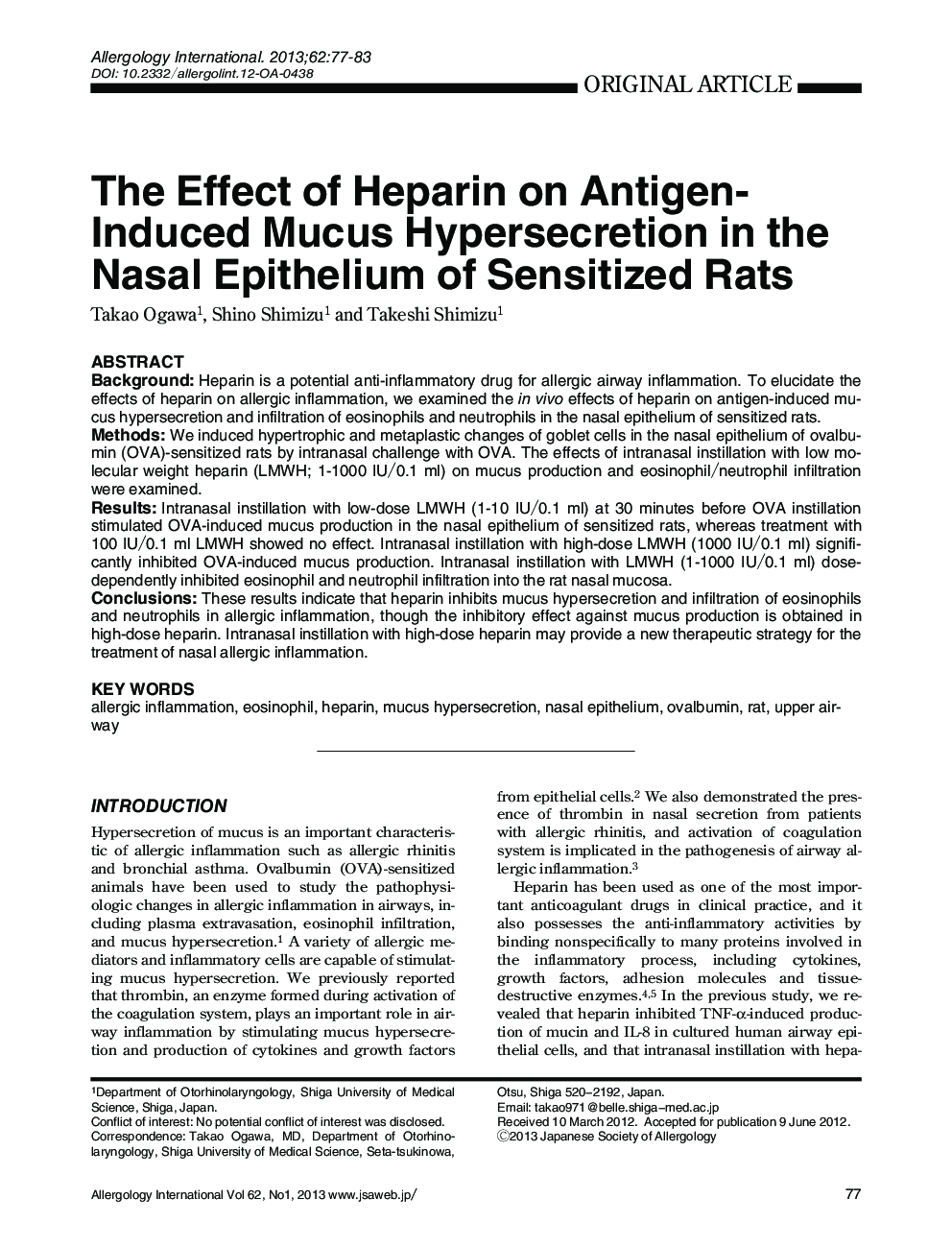| Article ID | Journal | Published Year | Pages | File Type |
|---|---|---|---|---|
| 3340859 | Allergology International | 2013 | 7 Pages |
ABSTRACTBackgroundHeparin is a potential anti-inflammatory drug for allergic airway inflammation. To elucidate the effects of heparin on allergic inflammation, we examined the in vivo effects of heparin on antigen-induced mucus hypersecretion and infiltration of eosinophils and neutrophils in the nasal epithelium of sensitized rats.MethodsWe induced hypertrophic and metaplastic changes of goblet cells in the nasal epithelium of ovalbumin (OVA)-sensitized rats by intranasal challenge with OVA. The effects of intranasal instillation with low molecular weight heparin (LMWH; 1–1000 IU/0.1 ml) on mucus production and eosinophil/neutrophil infiltration were examined.ResultsIntranasal instillation with low-dose LMWH (1–10 IU/0.1 ml) at 30 minutes before OVA instillation stimulated OVA-induced mucus production in the nasal epithelium of sensitized rats, whereas treatment with 100 IU/0.1 ml LMWH showed no effect. Intranasal instillation with high-dose LMWH (1000 IU/0.1 ml) significantly inhibited OVA-induced mucus production. Intranasal instillation with LMWH (1–1000 IU/0.1 ml) dose-dependently inhibited eosinophil and neutrophil infiltration into the rat nasal mucosa.ConclusionsThese results indicate that heparin inhibits mucus hypersecretion and infiltration of eosinophils and neutrophils in allergic inflammation, though the inhibitory effect against mucus production is obtained in high-dose heparin. Intranasal instillation with high-dose heparin may provide a new therapeutic strategy for the treatment of nasal allergic inflammation.
